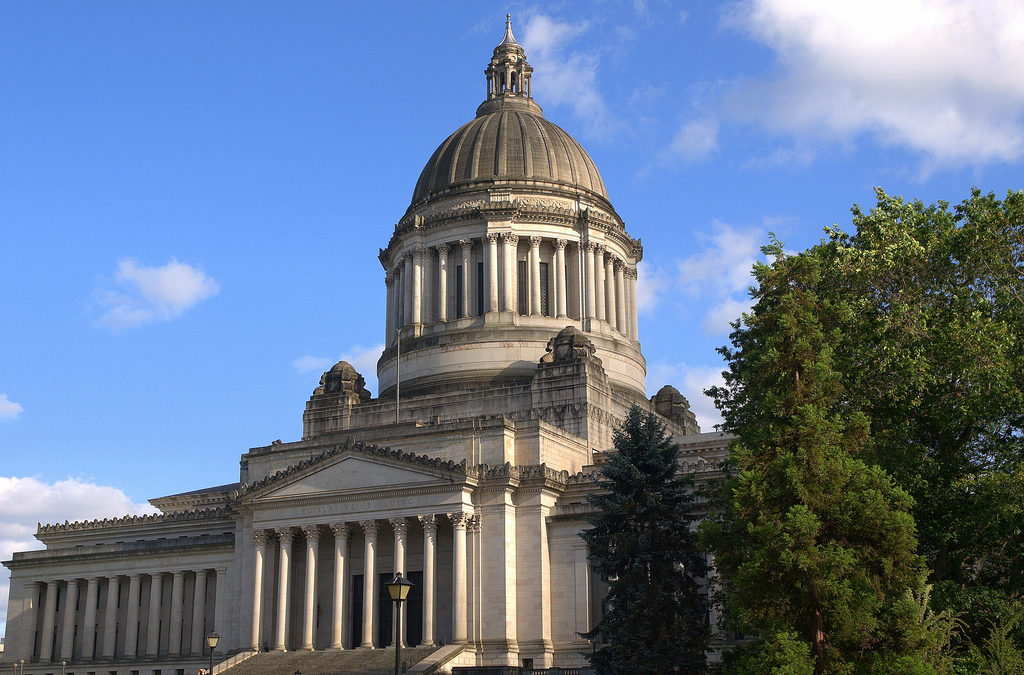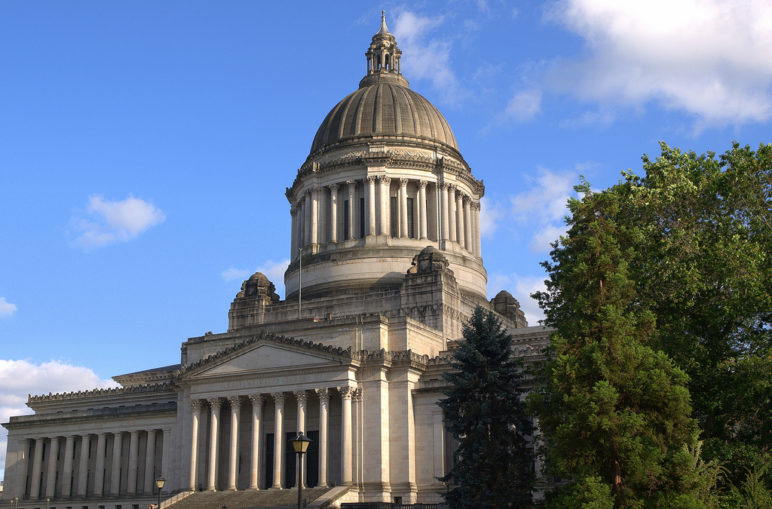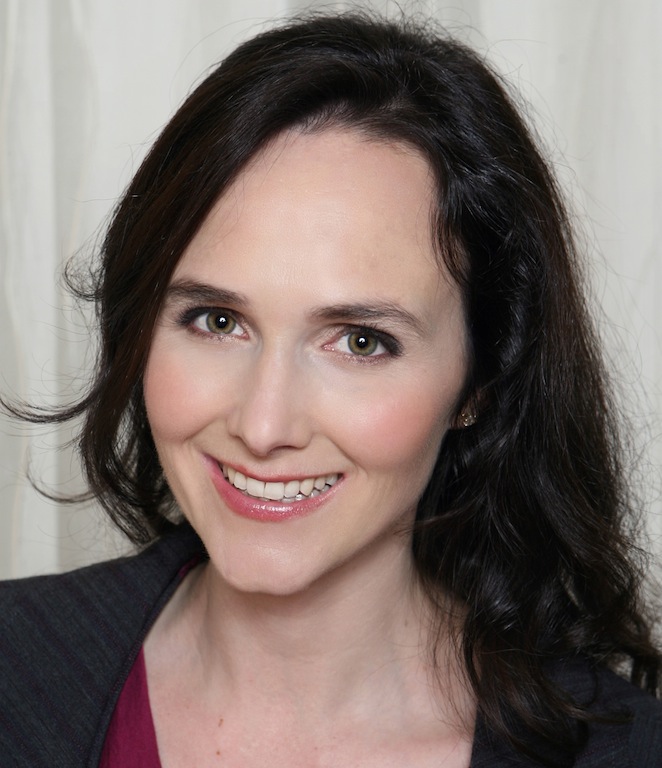The path to fixing giant problems like gerrymandering, money-soaked elections, and parties’ and officials’ accountability to voters leads through electoral reform.
UPDATE, January 16, 2018: The Local Options Bill now has a number—HB 2746—and 15 co-sponsors in the Washington legislature.
The path to fixing giant problems like gerrymandering, money-soaked elections, and parties’ and officials’ accountability to voters leads through electoral reform, I’ve been arguing (here, here, here, here, here). The path to electoral reform in Washington, DC, leads through the states—the laboratories of democracy. And the clearest path to reform in the states likely leads through localities. Voters want to see ranked-choice voting, proportional representation, and other, better electoral systems working in the real world, before they may be willing to take a chance on statewide reforms. If voters see it working for their city and school board, they are more likely to want better voting systems for their state representatives.
Perhaps the state did not mean to micro-manage local jurisdictions and take away local options, but state statutes seem to do just that. For example, in 1999 Vancouver voters amended their city charter to eliminate primary elections and use ranked-choice voting in the general, but they found themselves blocked by over-broad state law requiring them to hold a primary. This year, voters in Whatcom county are contemplating the benefits of proportional representation, but state law won’t allow them to implement it.
This year, the Washington State Legislature is introducing the Local Options Bill to clarify the state’s intent to give local jurisdictions the freedom to make their own decisions about how to handle primaries and at-large seats. The Local Options Bill doesn’t require the state to do anything or pay anything—just get out of the way of local jurisdictions that want to make their elections work better.
The Local Options Bill frees cities, counties, and school boards to decide whether to employ a voting system that better meets their objectives. Specifically, local jurisdictions could choose:
- To eliminate the primary election and use ranked-choice voting in a single high-turnout general election. This would give general election voters more voice, eliminate vote-splitting, encourage more positive issue-oriented campaigns, and, in some cases, save taxpayers money. For example, in Seattle, about twice as many people vote in presidential year general elections as in presidential year primary elections. Consolidating into a single high-turnout election would give more voters a chance to weigh in.
- To use proportional representation that ensures local elected officials reflect the diversity of voters in values, party affiliation, ideology, race, ethnicity, and gender. Instead of single-winner at-large seats or single-winner districts, local jurisdictions could choose to use multi-winner districts with ranked-choice voting. Proportional representation offers many benefits, including giving more voters a voice in local elections, defanging the gerrymander, and giving outsiders and reformers a chance to win seats and implement changes to reduce the power of big money and special interests.
If state legislators in Olympia pass the Local Options Bill in 2018 and give alternatives to local voters, some cities, counties, or school boards might choose to eliminate primaries or adopt proportional representation. When they do, other Washingtonians will get the chance to see those reforms in action. Seeing reforms in action in Washington cities, counties and school boards, is a likely path to bigger reforms as voters see the benefits of better voting systems and start to demand better voting at the state and federal level, too.












Jameson Quinn
Where can I read the text of this bill? If it’s already submitted, what is the bill number?
It’s important that this bill allow improved voting methods in general, not just specific methods. IRV and STV are good, but they are far from being the only ways to fix the voting system. For example, Star voting (http://www.equal.vote/) is a great solution, and invented in the PNW. If states are the labs of democracy, then they shouldn’t pre-judge the outcome.
Parker Friedland
Ask Guy Palumbo about it. He co-sponsored a previous bill about the local use of voting methods in the past, and when I asked him about that bill, he told me in an email that it failed but a new one might be negotiated in January. Perhaps this is the one that he was talking about.
Parker Friedland
I found it: http://apps2.leg.wa.gov/billsummary?Year=2017&BillNumber=2746&Year=2017&BillNumber=2746
Parker Friedland
If the bill is about giving local municipalities better options, shouldn’t the bill allow them to chose from a greater variety of voting systems? Based on the description of the bill, it sounds like it only allows local municipalities to switch to IRV or STV. Why not provide local municipalities with even more options?
Some municipalities don’t want to bear the expenses that are required to update their voting procedure so they can conduct IRV elections, so instead of letting those municipalities continue to use FPTP, why not give them the option of approval voting. And if a local municipality wants to experiment with a different proportional voting method, (Proportional Approval, Harmonic, Monroe’s method, etc.) why not let them experiment? It’s their choice, right?
If I wrote this bill, it would be SUPER broad. Local municipalities would be able to implement ANY voting method they wanted as long as that voting method is introduced through a ballot initiative, or introduced through a referendum proposed by that municipality, so either way, voters in that municipality would have to vote on whether they want that voting method. This way, you don’t have do define a bunch of voting methods, as well as all of the versions of those voting methods (there are so many slightly different variants of the same STV method, such as Scottish STV, Australian STV, Irish STV, Warren STV, Meek STV, etc). Any voting method should be fine as long as local voters approve.
Also, I can’t find the bill on the Washington State Legislature website. I searched up “Washington State Local Options Bill” and similar phrases and got nothing. Can you give me it’s boring name (HB ####, or SB ####)? If not, can you tell me who the bill’s sponsor is?
Parker Friedland
Correction – I said this:
>so instead of letting those municipalities continue to use FPTP, why not give them the
>option of approval voting
Here in Washington, we have runoff elections, so what I meant was:
>so instead of letting those municipalities continue to use runoffs, why not give them
>the option of approval voting
Glenn Blackmon
Is this SB 6002?
http://app.leg.wa.gov/billsummary?BillNumber=6002&Year=2017
Weird not to identify the bill in the article.
Parker Friedland
Ask Guy Palumbo what bill it is. He co-sponsored a previous bill about the local use of voting methods in the past, and when I asked him about that bill, he told me in an email that it failed but a new one might be negotiated in January. Perhaps this is the one that he was talking about.
Parker Friedland
Nope. It’s this one: http://apps2.leg.wa.gov/billsummary?Year=2017&BillNumber=2746&Year=2017&BillNumber=2746
Clay Shentrup
Instant Runoff Voting doesn’t eliminate vote splitting. This has been explained to Kristin countless times, including by a math PhD.
Do you want people to think Sightline can’t be treated as a reliable source of information?
Karen Ramage
It would be helpful to have the bill number provided so that we can check it out ourselves.
Parker Friedland
Ask Guy Palumbo what bill it is. He co-sponsored a previous bill about the local use of voting methods in the past, and when I asked him about that bill, he told me in an email that it failed but a new one might be negotiated in January. Perhaps this is the one that he was talking about.
Parker Friedland
Here: http://apps2.leg.wa.gov/billsummary?Year=2017&BillNumber=2746&Year=2017&BillNumber=2746
David Kerlick
Definitely need a bill number before I can contact legislators. The best voting action last year was Yakima allowing district, rather than at-large voting for city council. Hispanics represented finally! Is this something that needs be addressed?
Parker Friedland
Here’s the bill: http://apps2.leg.wa.gov/billsummary?Year=2017&BillNumber=2746&Year=2017&BillNumber=2746
Donna
Any update on this?
Kelsey Hamlin
Donna, the bill did not pass last session. A new and improved version will enter the legislature this coming session.